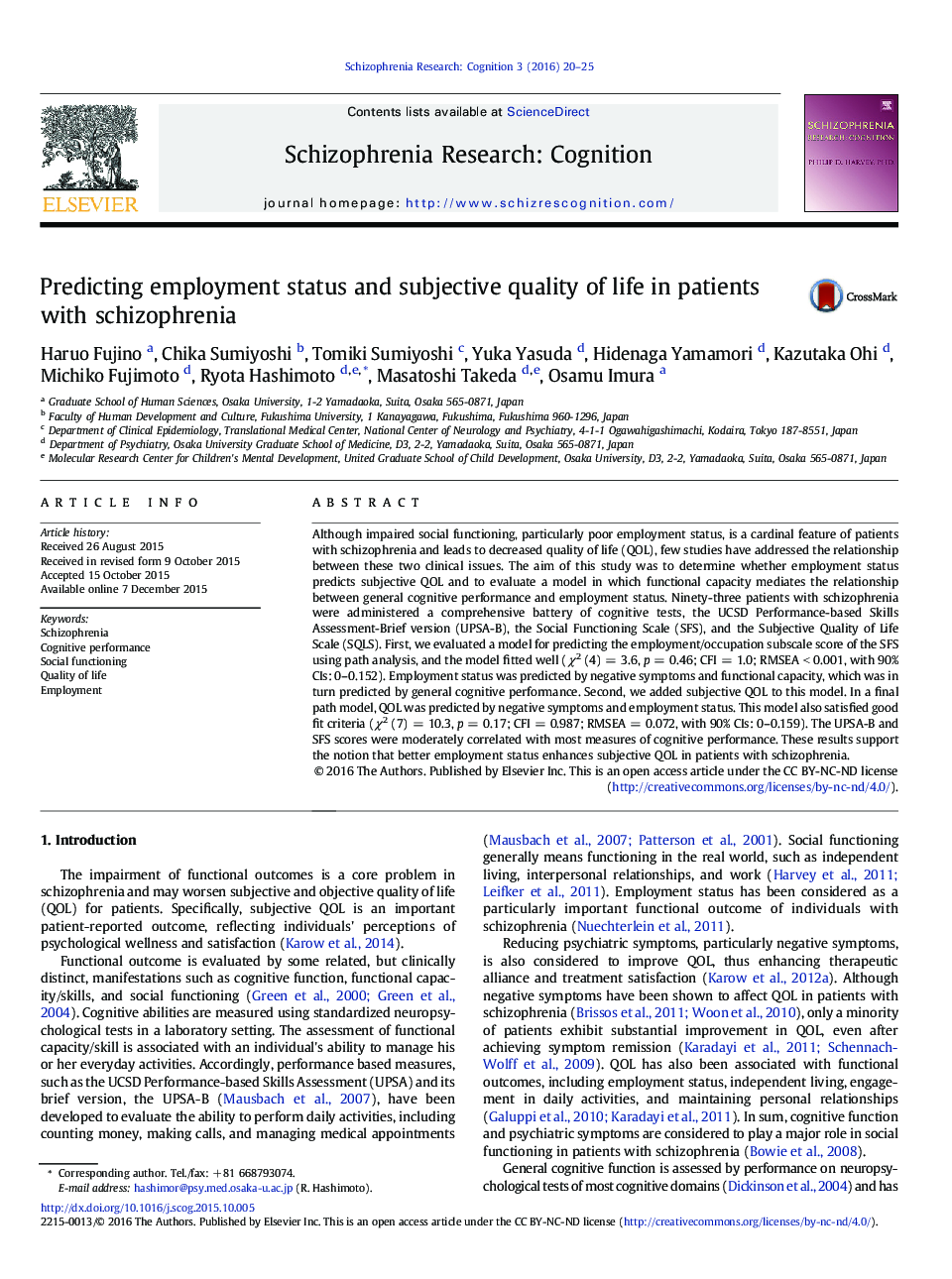| کد مقاله | کد نشریه | سال انتشار | مقاله انگلیسی | نسخه تمام متن |
|---|---|---|---|---|
| 4191746 | 1608484 | 2016 | 6 صفحه PDF | دانلود رایگان |
Although impaired social functioning, particularly poor employment status, is a cardinal feature of patients with schizophrenia and leads to decreased quality of life (QOL), few studies have addressed the relationship between these two clinical issues. The aim of this study was to determine whether employment status predicts subjective QOL and to evaluate a model in which functional capacity mediates the relationship between general cognitive performance and employment status. Ninety-three patients with schizophrenia were administered a comprehensive battery of cognitive tests, the UCSD Performance-based Skills Assessment-Brief version (UPSA-B), the Social Functioning Scale (SFS), and the Subjective Quality of Life Scale (SQLS). First, we evaluated a model for predicting the employment/occupation subscale score of the SFS using path analysis, and the model fitted well (χ2 (4) = 3.6, p = 0.46; CFI = 1.0; RMSEA < 0.001, with 90% CIs: 0–0.152). Employment status was predicted by negative symptoms and functional capacity, which was in turn predicted by general cognitive performance. Second, we added subjective QOL to this model. In a final path model, QOL was predicted by negative symptoms and employment status. This model also satisfied good fit criteria (χ2 (7) = 10.3, p = 0.17; CFI = 0.987; RMSEA = 0.072, with 90% CIs: 0–0.159). The UPSA-B and SFS scores were moderately correlated with most measures of cognitive performance. These results support the notion that better employment status enhances subjective QOL in patients with schizophrenia.
Journal: Schizophrenia Research: Cognition - Volume 3, March 2016, Pages 20–25
